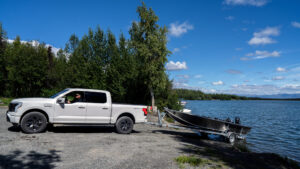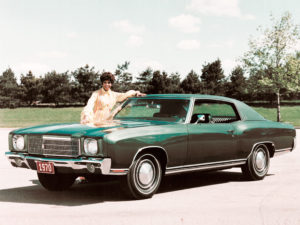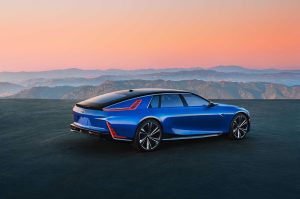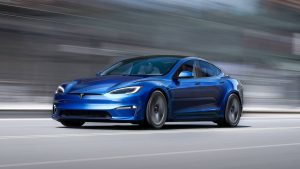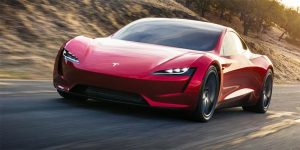The first time the public will see the eighth-generation 2021 Volkswagen GTI in person will be at the Geneva International Motor Show in early March. Ahead of its public unveiling, Volkswagen has let slip the details of the model along with some pictures.
The fresh model is an evolution of the famed Golf GTI Mark 1 that came to market in 1976. This eighth generation features the debut of three models: the Golf GTI, GTD, and GTE.
The front bottom of the car is where a cluster of fog lights is located.Photo courtesy of Volkswagen AG
On the outside, the new Golf features a natural design evolution of the previous model. There are standard LED headlights and daytime running lights that sit low on the front end atop the grille, which has its own LED light strip for the first time. Towards the top of the hood, a narrow line spans the front end—red in the case of the GTI, blue for the GTE and silver for the GTD. The available fog lights form an X-shape in the lower honeycomb of the grille.
The GTI rides on unique standard 17-inch Richmond aluminum-alloy wheels and has red brake calipers.
Rims that are 18- and 19-inches are available.
On the exterior, the equipment is supplemented by the 17-inch aluminum-alloy wheels, the rear diffuser, roof spoiler, individualized tail pipes, red brake calipers and sill extensions.
The GTI and GTD have a 0.6-inch lower sport suspension than a standard Golf.At the back are LED taillight clusters. Badging has been shifted around the model and appears in new locations on the front, side, and rear. The GTI has one tailpipe on the left while the GTD has dual left tailpipes. on tailpipe is visible on the GTE.
The rear of the car features standard LED taillights.Photo courtesy of Volkswagen AG
Under the hood of the GTI is a turbocharged 2.-liter four-cylinder engine that achieves 245 horsepower and 273 pound-feet of torque and is paired with a standard six-speed manual transmission. A seven-speed dual-clutch transmission is available.
The Golf GTE is powered by a 150-horsepower 1.4-liter turbo-four engine that is paired with a 114-horsepower electric motor and six-speed gearbox. It delivers 245 horsepower and 295 pound-feet combined and has an all-electric range of 37 miles.
Volkswagen has given the Golf GTD a 2.0-liter four-cylinder turbocharged Diesel engine that achieves 200 horsepower and 295 pound-feet of torque. It comes standard with a seven-speed dual-clutch transmission.
The tori-spoke wheel features multi-function buttons.Photo courtesy of Volkswagen AG
Undnerpinnning the Golf is a new strut-type front and multi-link rear suspension. They work in connection with the driving dynamics control system (Vehicle Dynamics Manager), which reacts to the road surface and driving conditions with active damping at the rate of a fraction of a second. Drivers have the option of Individual, Comfort, Eco, and Sport drive modes.
The cabin is filled with nods to fresh innovation as well as classic car design. There’s a sport steering wheel with three silver double spokes and recessed Wolfsburg emblem, the golf ball shifter knob, and tartan GTI sport seats.
Plaid returns to the model’s seats.Photo courtesy of Volkswagen AG
On the steering wheel, there’s a Travel Assist button which helps drivers reach 130 mph while Travel Assist is engaged.
Volkswagen has updated the plaid in the Golf to a new checked design called Scalepepper.
Each of the Golf models has interior accents according to their assigned color motif. GTI has black, gray, and red; GTE gets blue; and GTD is gray.
Different models get different colored accents.Photo courtesy of Volkswagen AG
Buyers can get up to a 10.25-inch digital coconut and 10-inch navigation system. The standard features list includes LED reading lights, two USB-C ports, single-zone automatic climate control, stainless steel pedals, and push-button start.
Spirited driving and safety are both priorities in the model, which comes standard with lane keeping assist, forward collision alert with assist and pedestrian monitoring, and Car2X (local communication with other vehicles and the traffic infrastructure).



